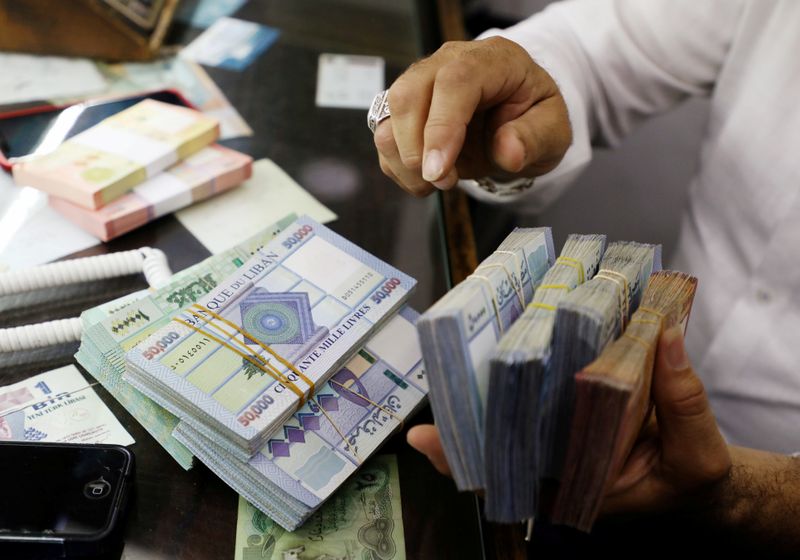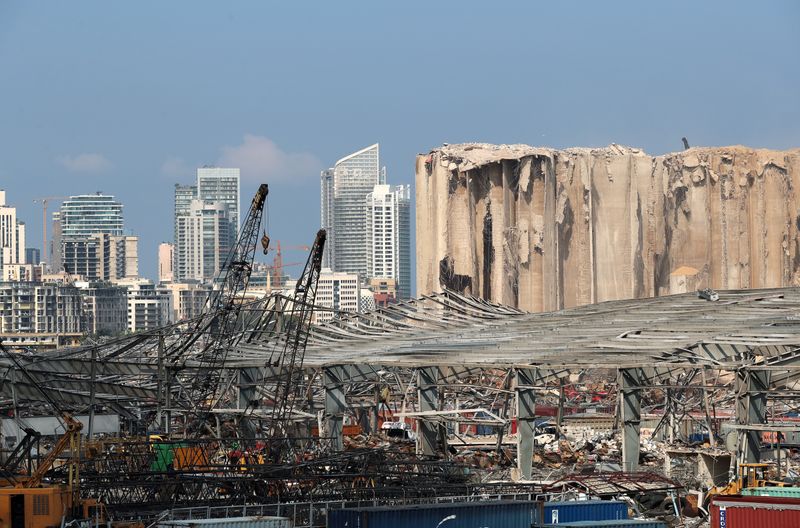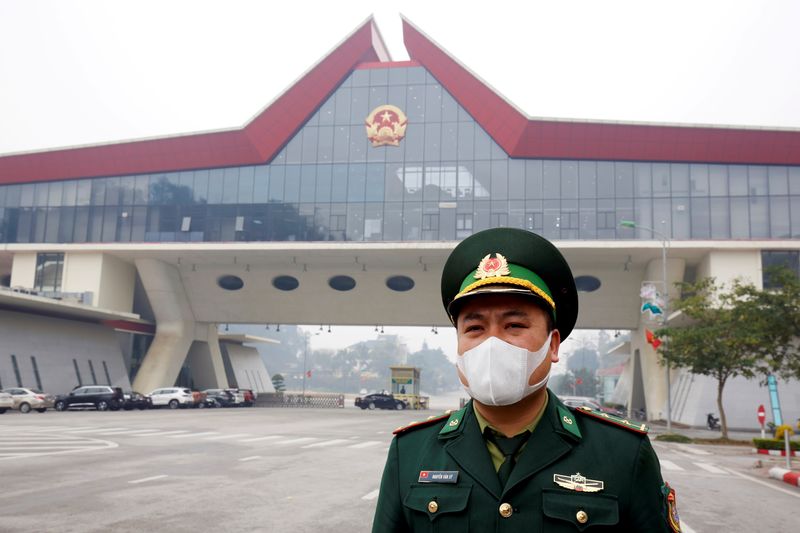LONDON (Reuters) – Frontier stocks have trailed bigger emerging markets in recovering from the coronavirus-induced crash as liquidity has dried up and investors beat a hasty retreat.
BMO Global Asset Management shut a $78 million fund and Aberdeen Standard Investments wound up an investment trust, both invested in frontier stocks, in recent months after fellow fund manager Barings took a similar step last year.
Money managers say assets under management in dedicated frontier funds have tumbled to close to $4 billion from around $15 billion in 2014, when from Nigeria to Lebanon, markets once seen as too risky saw an influx of money, with investors betting on fast-growing economies and idiosyncratic investment stories.
“Flows have been negative for the last three years,” Fergus Argyle, assistant manager of frontier at Somerset Capital Management, told Reuters.
“On the one hand it’s a bit alarming, but on the other hand it’s also quite encouraging .. there’s a lot of pain in the market already and a lot of capital has left the market and we don’t see a significant need for change for sentiment to really improve,” Argyle added.
The draining of cash reflects disappointment with an asset class that has frequently failed to compensate for the added risk of markets prone to crises or capital controls.
Since the COVID-19 pandemic triggered global market falls in late February, investor disappointment has intensified.
MSCI’s Frontier Markets Index <.dMI7400000PUS>, encompassing a diverse group banded together due to scarce liquidity, lack of size and access restrictions, has fallen 6.3% since late February, while its emerging market equivalent <.dMIEF00000PUS>. has climbed by 10% over the same period.
Several frontier funds have had even poorer performances.
Graphic: Mind the gap: Frontier market stocks lag global peers – https://graphics.reuters.com/MARKETS-FRONTIER/ygdvzbywevw/chart.png
In a sign of the risk aversion felt towards frontier stocks, outflows have persisted every month since April 2018, EPFR Global data shows.
Meanwhile, global emerging market managers have also been selling down benchmark frontier exposure, Steven Holden, director of Copley Fund Research, said.
A record low of 41% of funds had any frontier exposure at all, with average weights of 0.82% towards the bottom of the 13-year range, he said.
The exit of Kuwait’s stocks, accounting for around $100 million of daily trading on the index, from the frontier market benchmark in the coming months is adding to the malaise.
Kuwait, which at 36% has the largest country weighting, has been reclassified by MSCI to the emerging market benchmark from the end of this month.
“The upgrade (of Kuwait) will have seismic implications on the stability and overall liquidity of the index and on fund performance as passive flows distort fundamentals,” Bassel Khatoun, managing director, of frontier and MENA, Franklin Templeton Emerging Markets Equity, said.
TRAILING TECH
Fund managers say the impact of an estimated $12 trillion in stimulus which has been rolled out mainly in advanced economies since the pandemic has drawn investor cash from the frontiers.
While it has helped pump up stock market valuations in the developed world, with some trickling into bigger emerging markets, it has not done so in frontier markets where central banks have far less fiscal firepower.
“At the moment, earnings growth doesn’t determine stock market performance because there are so many outside factors such as monetary policy, fiscal policy and other reactions to the virus in terms of lockdowns etc,” said Dominic Bokor-Ingram, senior portfolio manager of frontier markets at Fiera Capital.
Company earnings, the normal driver of stock markets, had been less dire in the first half of the year in frontier markets than in emerging or U.S. ones, Bokor-Ingram added.
Frontier markets have suffered in part from a lack of ‘stay at home’ stocks which have thrived during lockdowns. Vietnam-based FPT Corp <FPT.HM> and Morocco’s Hightech Payment Systems <HPS.CS> are among the tech names favoured by fund managers, but neither are in the MSCI index.
By contrast, tech stocks make up around a third of the U.S. S&P 500 <.SPX>, and their rally has lifted the wider market.
“The likes of Apple, Microsoft and Amazon have returns ranging between 30%-70% in share prices,” said Peter Leger, head of global frontiers markets at Coronation Fund Managers.
“That steals the headlines and people have not been feeling the need to look further afield for returns.”
Graphic: Frontier equity flows still to recover – https://graphics.reuters.com/MARKETS-FRONTIER/qmyvmxngbpr/chart.png
GREEN SHOOTS
Despite the outflows, some fund managers are betting on a turnaround, with a Joe Biden presidency in the United States expected to usher in a more predictable geopolitical climate.
And if there is no resolution to trade tensions between the U.S. and China, Vietnam and Bangladesh should benefit further.
“We’re pretty positive,” George Birch Reynardson, portfolio manager at Somerset Capital Management, said.
“Frontier stocks today are a trading around 14 times earnings, compared to emerging at 20 times and developed at 28 times. So, there’s a big valuation discount, one of the biggest we’ve seen historically,” Reynardson said.
“We’d expect that to start to attract new investments.”
Green shoots may already be sprouting in some markets, with frontier stocks outperforming both emerging and developed markets in the third quarter, Kathrine Husvaeg, senior portfolio manager, Russell Investments, said.
“If there is a vaccine, the return of tourism will provide a boost in recovery for many of these countries,” she added.
(Additional reporting by Karin Strohecker; Editing by Alexander Smith)


























